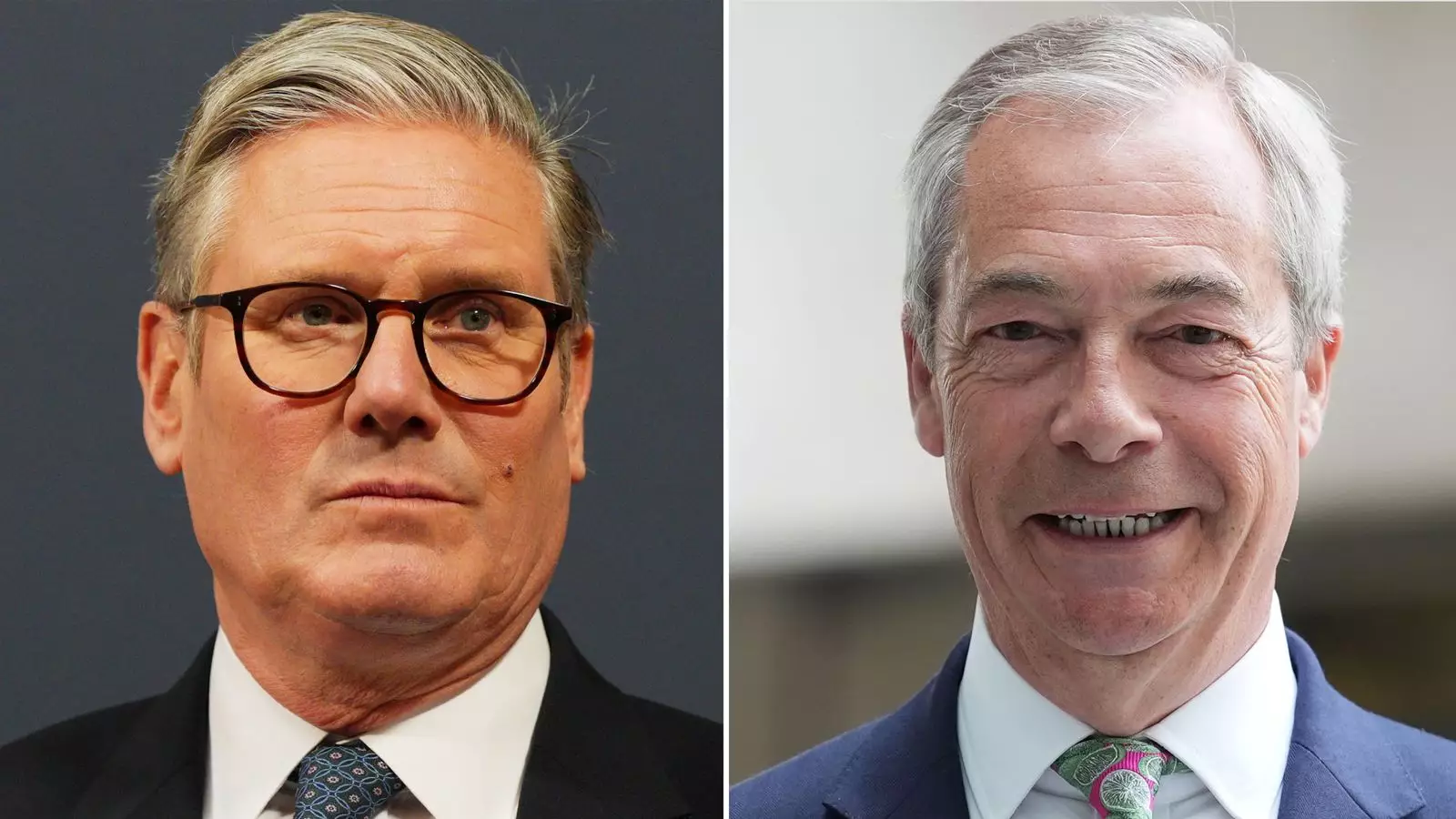The political landscape in the UK is rife with rhetoric, and at the forefront today is Nigel Farage, whose proposals alarmingly echo the reckless financial policies of former Prime Minister Liz Truss. It’s astonishing that in the 21st century, we still find ourselves grappling with ideologies driven by fantasy rather than sound economic principles. Farage’s commitment to reverse cuts to winter fuel payments and eliminate the two-child benefit cap is not only populist bravado; it’s an alarming path towards fiscal catastrophe.
The promise of slashing income tax, while emotionally appealing, raises critical questions about how we fund our essential services and responsibilities. A recent analysis conducted by the Institute of Fiscal Studies underscores the potential for Farage’s policies to escalate the cost of living crisis—a scenario that would leave ordinary families trapped in a cycle of debt and despair.
Mad Experiment or Reckless Gamble?
Sir Keir Starmer’s characterization of Reform UK’s economic agenda as a “mad experiment” could not be timelier. By throwing caution to the wind and proposing radical tax cuts funded merely by the elimination of net zero commitments and a crackdown on asylum seekers, Farage is presenting a perilous gamble with the public’s financial stability. Just as Truss’s brief tenure was mired in economic chaos—where tax cuts did little to invigorate growth and instead led to spikes in borrowing costs—Farage’s proposals portend a similar trajectory.
What Farage seems to misunderstand is that an economy does not function on whims but on sustainable practices. The notion that reducing taxes significantly without a credible funding strategy will yield positive economic outcomes is, frankly, a disservice to constituents. It seeks to placate immediate public sentiment while ignoring the longer-term repercussions that will inevitably follow.
The Perils of Short-Sightedness
The obsession with instant gratification in politics is dangerous. As Labour grapples with the consequences of local election results, the pressure on Starmer to take decisive action is palpable. The recent U-turn on winter fuel payments highlights a party struggling not only for relevance but also for a coherent strategy in the face of shifting public opinion. It’s concerning that decisions may be driven more by immediate criticism than by long-term vision.
Arguably, the ongoing debate surrounding the two-child benefit cap illustrates a party lengthening its reach to appease an understanding of economic relief rather than strictly evaluating the fiscal implications. The emotional toll of economic policies must be tempered with financial realism; knee-jerk reactions can have disastrous consequences ultimately leading to economic instability.
Forgotten Lessons from the Past
When looking back on the Truss administration, the lessons learned seem to vanish in the wake of the allure of tax cuts and projected savings. The overwhelming volatility that followed her policies offered a stark reminder that economic management relies fundamentally on balancing expenditure and income. Farage needs to recognize that slashing taxes without comprehensive strategies to support welfare programs, infrastructure, and public services jeopardizes the socioeconomic fabric of our society.
Instead, political leaders should champion policies that prioritize stability and equity rather than ephemeral gains. The temptation to chase votes through populism is an easy one, but it often culminates in rallying cries that create fissures in the very foundations of our economy.
Facing the Future with Pragmatism
Farage’s ambitions fueled by the winds of populism reflect a troubling trend in today’s politics: the prioritization of electioneering over pragmatism. As he eyes potential political victories reminiscent of the recent by-elections, one must question whether these wins will translate into real, sustainable governance or merely serve the purpose of momentary applause.
To forge a path forward, we must advocate for responsible, compassionate policies that acknowledge the interconnectedness of our economic reality. It is vital now more than ever for political leaders to eschew fantastical promises in favor of strategies rooted in financial discipline, progressive taxation, and social welfare policies that uplift, rather than dismantle, the safety nets society has built. This is not just a matter of economic necessity, but of moral responsibility to serve every citizen.


Leave a Reply